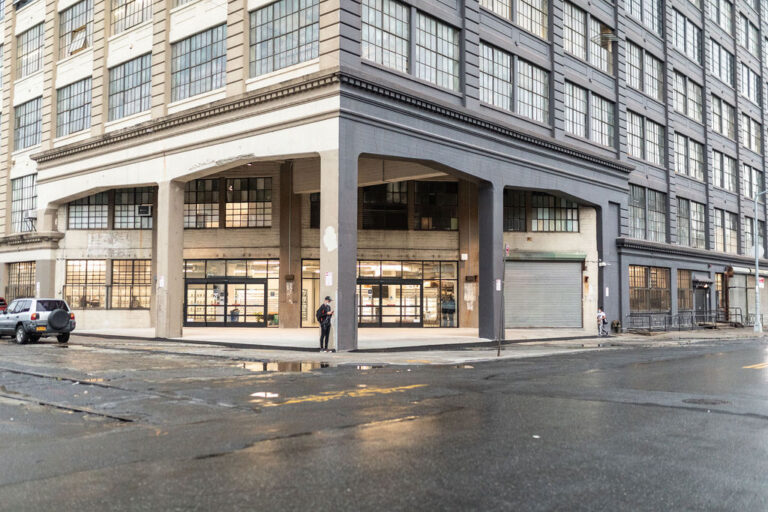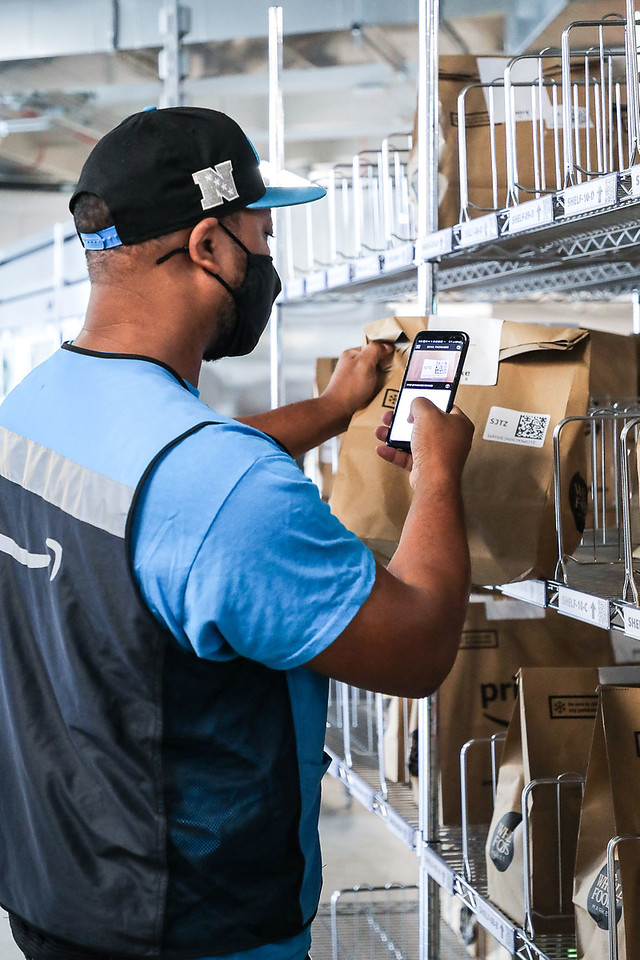Toilet paper hoarders, sweatpants wearers, and banana bread bakers. We sure have learned a lot about how a crisis impacts consumer behavior.
Just over a year ago, The Atlantic asked, if we shop for almost everything online, why are we not on board with shopping online for food? Between consumers’ preference for shopping IRL and the logistical issues around delivering an avocado, a gallon of laundry detergent, and a pint of ice cream in one order, grocery retailers simply weren’t willing to invest enough in e-commerce to yield wide adoption.
If necessity is the mother of invention, then the Covid-19 pandemic accelerated an already growing trend, and one that seems to be here to stay.
The challenge is that grocers need to turn their buildings into omni-channel retail spaces or standalone micro fulfillment centers. Pre-Covid buildings, and how they’re operated, just can’t do the work we need them to do now. But…how can companies transform their existing buildings in a way that minimizes costs in a tight market while also delivering as reliably as before?

Whole Foods Market pioneered this trend in grocery innovation, unveiling their first “Dark Grocery” or permanent online only Whole Foods store in July 2020. The 30,000 SF space in Brooklyn’s Industry City allows Amazon’s Prime Now shoppers to fulfill online grocery orders behind the scenes without crowding the aisles of their customer facing stores.
Whole Foods selected CM&B to bring the project to life because of our 17-year track record with them. They know we understand the complexities of building a food store. What started as a 16-week schedule was compressed to 10 weeks through close coordination between the client, landlord, consultant team, and subcontractors. In a time when medically high-risk customers can’t go to the grocery store, getting things up and running 6 weeks ahead of schedule has a big impact.
Shaving 6 weeks off a schedule is difficult in normal times let alone these times. In addition to traditional warehouse space for dry goods storage, the 100+ year-old building had no heating, cooling, or refrigeration, necessitating a rooftop cooling tower. Meanwhile, increased safety protocol and inspections from the DOB due to Covid-19 added yet another layer of complication. Coupled with a significant sitework component, the addition of a 35-stall parking garage mid-stream, and renovation of Industry City’s dock leveler, the CM&B team leveraged subcontractor relationships and worked a second shift for the last 6 weeks of the project to pull off what seemed impossible.

You might think we did this by passing on significant change orders to our client, but at the ribbon cutting on July 20, 2020, Whole Foods Market Principal Construction Program Manager Bret Hardman said, “The relationship and trust that Whole Foods Market has with CM&B allows us to complete projects with condensed schedules. The entire CM&B team continues to impress us with knowledge and foresight of projects on all levels.”
As our clients innovate and find ways to get closer to the consumer, the CM&B team is there every step of the way to manage cost and schedule. We call this a predictable outcome, and in this time of great uncertainty, isn’t that what everyone wants?

